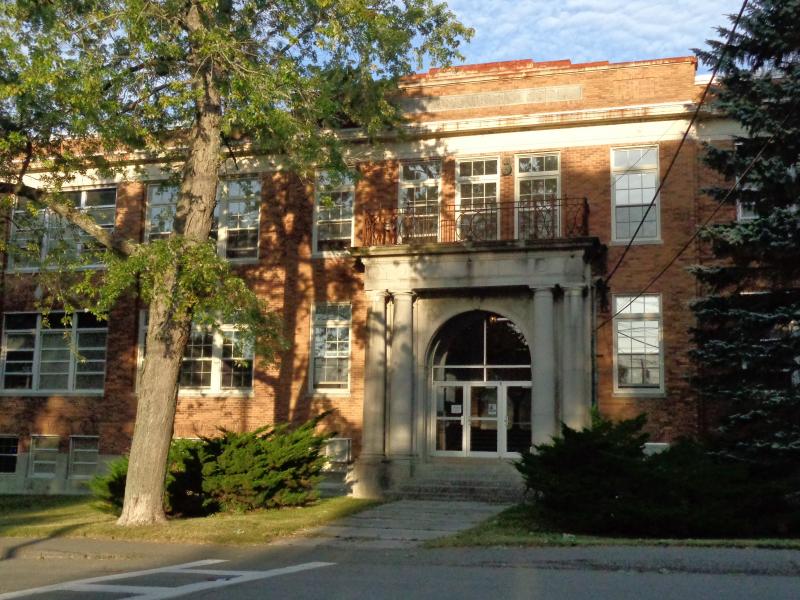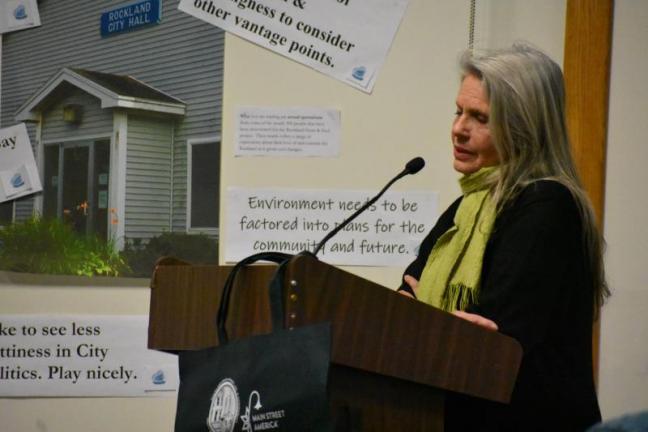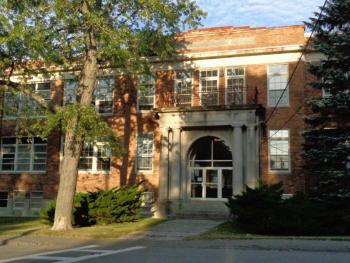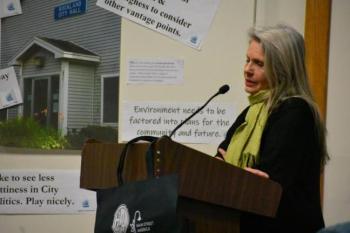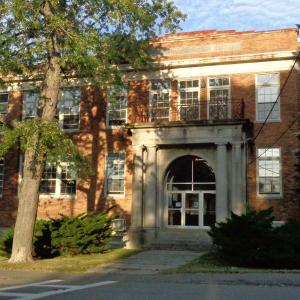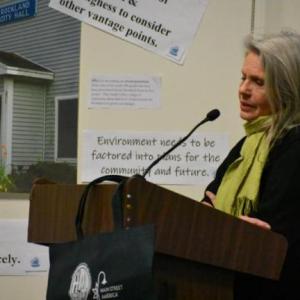Overnight accommodations approved in Rockland for Lincoln Street Arts Center
ROCKLAND — Renovations to four classroom-size units within the Lincoln Street Center may begin as early as April 10, now that the Rockland City Council has approved an ordinance change for the building.
For the City of Rockland, the ordinance amendment simply adds one word to the language. But for the artist community, that amendment opens up a new and diverse scope of art quality, as well as a boost to the state and local economy.
Previously zoned as a daytime-use only building, the ordinance for the former high school is being amended to include “live” alongside the previous “work” language.
A March 11 Rockland City Council vote unanimously approved the wording, and indirectly, the Ellis Beauregard Foundation’s desire to allow its artists-in-residency to live where they work.
The Foundation has been renting the space at the Center for three years, according to Donna McNeil, executive director of the Foundation. She told Council that the program’s vision was two-fold.
First, to support local artists by providing a studio for one to six months, along with a $1,000/month stipend.
Second, to bring in artists from away “to add diversity, and to create a dialogue with the residents of Rockland,” she said.
“Having recently completed the seventh round of applications of our residency program, it is clear that the local applicant pool is dwindling, that we need to change the program in ways that will accommodate the artists who live further afield and cannot effectively commute day to day,” she said.
The Ellis-Beauregard Foundation is the biggest tenant of the 22-unit Lincoln Street Center. Through the Foundation’s urging, the new management has made $50,000 worth of upgrades to the heating system and hired a “reliable and honest building manager,” according to her.
“Those changes alone have made a huge difference in the quality of building occupancy,” she said.
The Maine arts community makes up eight percent of the population, according to her., though many live at or below the poverty level, despite being highly educated and not reliant of government assistance.
Suzette McAvoy, director at Center for Maine Contemporary Art, told Council of her support for the Foundation’s future living arrangements for tenants.
Maine’s nonprofit arts industry generates $150 million in annual economic activity, supporting 4,190 jobs in generating $12.3 million in local and state revenue, according to McAvoy. More than two million people attended arts and culture events in Maine in 2015. Excluding the cost of admission, they spent an average of $31.38 per person towards the local economy.
“This proposed change to the ordinance protects this growing economic impact that artist have on our town, that is rapidly becoming known as the Arts Capital,” said McAvoy.
Councilor Valli Geiger also sees art as an for its economy rejuvenation. She told Council of how her father-in-law, a sculptor, moved to Portsmouth when the city was derelict. He and other artists helped revive the city and watch it grow into its current state.
“I see that artists bring incredible rejuvination into whatever city they cast their glance at, and we’re lucky that we are one of those cities,” she said. “So I’m really excited that we are moving to make sure we are continuing to welcome artists.”
Adding ‘live/work’ ordinance amendment could benefit artists, Rockland, proponents say
Rockland considers ordinance amendment to invigorate housing, and creative economy
Event Date
Address
United States

